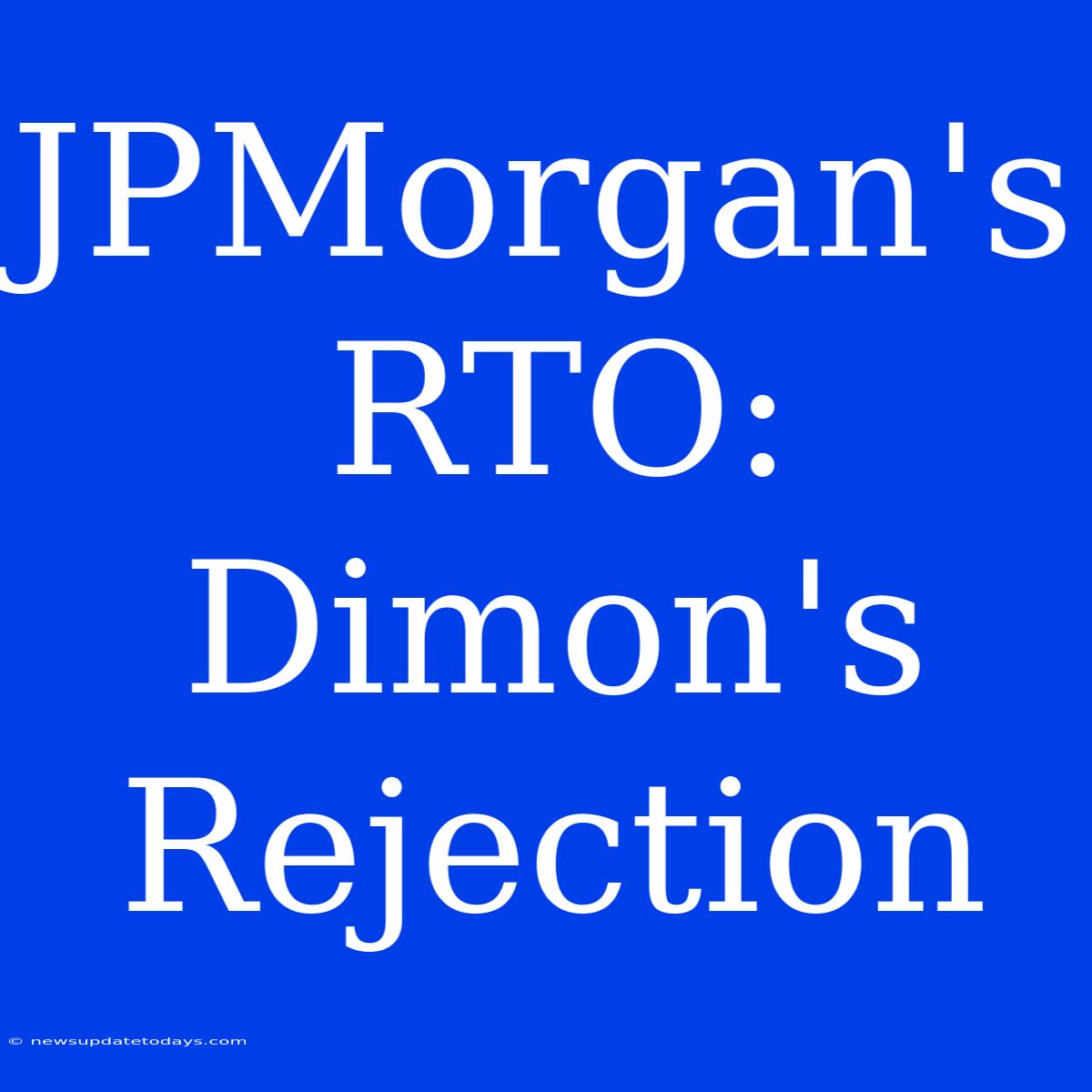JPMorgan's RTO: Dimon's Firm Rejection – A Deeper Dive into the Return-to-Office Debate
Jamie Dimon's unwavering stance against fully remote work at JPMorgan Chase has sparked a renewed debate about the future of the office. His recent pronouncements solidify his rejection of a widespread remote work model, creating ripples across the corporate landscape. This article delves into the reasons behind Dimon's decision, the implications for JPMorgan Chase employees, and the broader context of the ongoing return-to-office (RTO) discussion.
Why Dimon Says "No" to Remote Work
Dimon's argument against widespread remote work isn't simply about control; it's rooted in several key principles:
-
Mentorship and Collaboration: He emphasizes the irreplaceable value of in-person mentorship and spontaneous collaboration that fosters innovation and a strong company culture. The serendipitous encounters and knowledge sharing that occur naturally in an office environment are, he believes, difficult to replicate remotely.
-
Training and Development: Dimon argues that young professionals benefit greatly from close interaction with senior colleagues, learning through observation and informal interactions that are essential for professional growth. A remote-only setup, he fears, could hinder this vital aspect of employee development.
-
Company Culture and Unity: A strong company culture, he insists, thrives on in-person interaction. Building camaraderie and a sense of belonging is easier when employees are physically together, strengthening team cohesion and loyalty.
-
Productivity and Performance: While acknowledging the possibility of individual productivity in remote settings, Dimon believes that overall team performance and efficiency are enhanced by in-office collaboration.
The Impact on JPMorgan Chase Employees
Dimon's policy naturally affects JPMorgan Chase employees. While specific details remain undisclosed, it's likely that the bank will continue to enforce a significant in-office presence, potentially leading to:
-
Increased Commute: Employees will need to factor in commute times and associated costs, potentially affecting work-life balance.
-
Adjustments in Lifestyle: Employees may need to adjust their daily routines and childcare arrangements to accommodate in-office work.
-
Potential for Dissatisfaction: While some employees may welcome the return to the office, others may find the policy restrictive and potentially detrimental to their work-life balance and overall job satisfaction.
The Broader Context of the RTO Debate
JPMorgan Chase's stance is a significant contribution to the ongoing debate surrounding RTO policies. The pandemic accelerated the adoption of remote work, forcing companies to reconsider traditional workplace models. Dimon's vocal rejection represents a powerful counterpoint to the growing trend towards hybrid or fully remote work models adopted by other major companies. The debate highlights the following key issues:
-
Productivity vs. Wellbeing: Balancing employee productivity with employee wellbeing remains a crucial challenge. Companies are grappling with finding the right balance between maximizing output and fostering a supportive and inclusive work environment.
-
Attracting and Retaining Talent: In a competitive job market, companies must consider how their RTO policies influence their ability to attract and retain top talent. Rigid RTO policies could lead to employee attrition.
-
Adaptability and Flexibility: The future of work likely involves a degree of adaptability and flexibility, allowing companies to tailor their RTO policies to suit the specific needs of their employees and the nature of their work.
Conclusion:
Jamie Dimon's rejection of widespread remote work at JPMorgan Chase isn't just a company policy; it's a bold statement in the ongoing conversation about the future of work. While his reasons are rooted in a desire to foster collaboration, mentorship, and a strong company culture, the long-term implications for both JPMorgan Chase and the broader corporate landscape remain to be seen. The debate over RTO is far from over, and the approach taken by companies like JPMorgan Chase will continue to shape the evolution of the modern workplace.

